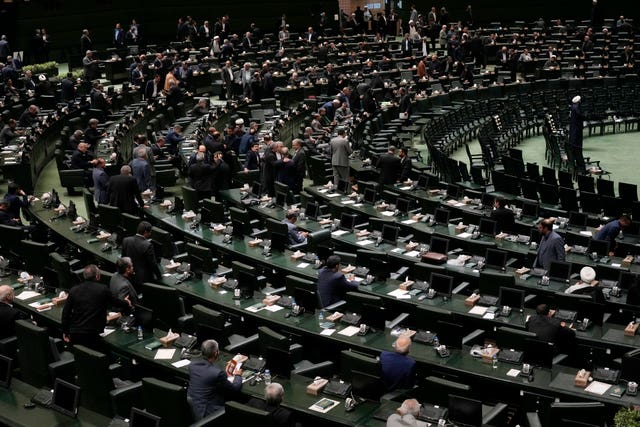Iran’s acting president Mohammad Mokhber has addressed the country’s new parliament in his first public speech since last week’s helicopter crash that killed his predecessor and seven others.
His speech comes as Iran prepares for a presidential election to replace the late Ebrahim Raisi in just a month, a vote that could see the previously behind-the-scenes bureaucrat potentially run alongside others. Meanwhile, Iran’s new hardline parliament is expected to select its new speaker on Tuesday.
In his remarks, Mr Mokhber praised Mr Raisi’s time in office, noting that Iran’s crude oil production – a key source of hard currency for the country – climbed to more than 3.6 million barrels a day. That comes after oil minister Javad Owji said Iran was now exporting around 2 million barrels a day, despite Western sanctions targeting the Islamic Republic.
Mr Mokhber also asserted that the country’s economy remained stable under Mr Raisi when Iran took military actions in Iraq, Israel and Pakistan in recent months.

The Iranian rial has tumbled from a rate of 32,000 rials to 1 US dollar at the time of Tehran’s 2015 nuclear deal with world powers. Today, it stands at around 580,000 to 1 dollar in the wake of the United States’ unilateral withdrawal from the accord and a series of attacks on shipping in the Middle East, first attributed to Iran and later involving Yemen’s Houthi rebels as Israel’s war against Hamas on the Gaza Strip began over seven months ago.
On May 20, rescuers recovered the bodies of Mr Raisi, foreign minister Hossein Amirabdollahian and others in a mountainous region in north-western Iran following a fatal helicopter crash.
Iran will hold presidential elections on June 28 to replace Mr Raisi. On Thursday, a five-day registration period for candidates will open. Analysts have suggested that Mr Mokhber could be one of those to register.
Meanwhile, Monday marked the first day for Iran’s newly elected parliament, following a March election that saw the country’s lowest turnout since its 1979 Islamic Revolution. Of those elected to the 290-seat body, hardliners hold more than 230 seats, according to an Associated Press survey.
Iran’s parliament plays a secondary role in governing the country, though it can intensify pressure on a presidential administration when deciding on the annual budget and other important bills. Supreme Leader Ayatollah Ali Khamenei, 85, has the final say in all important state matters.






